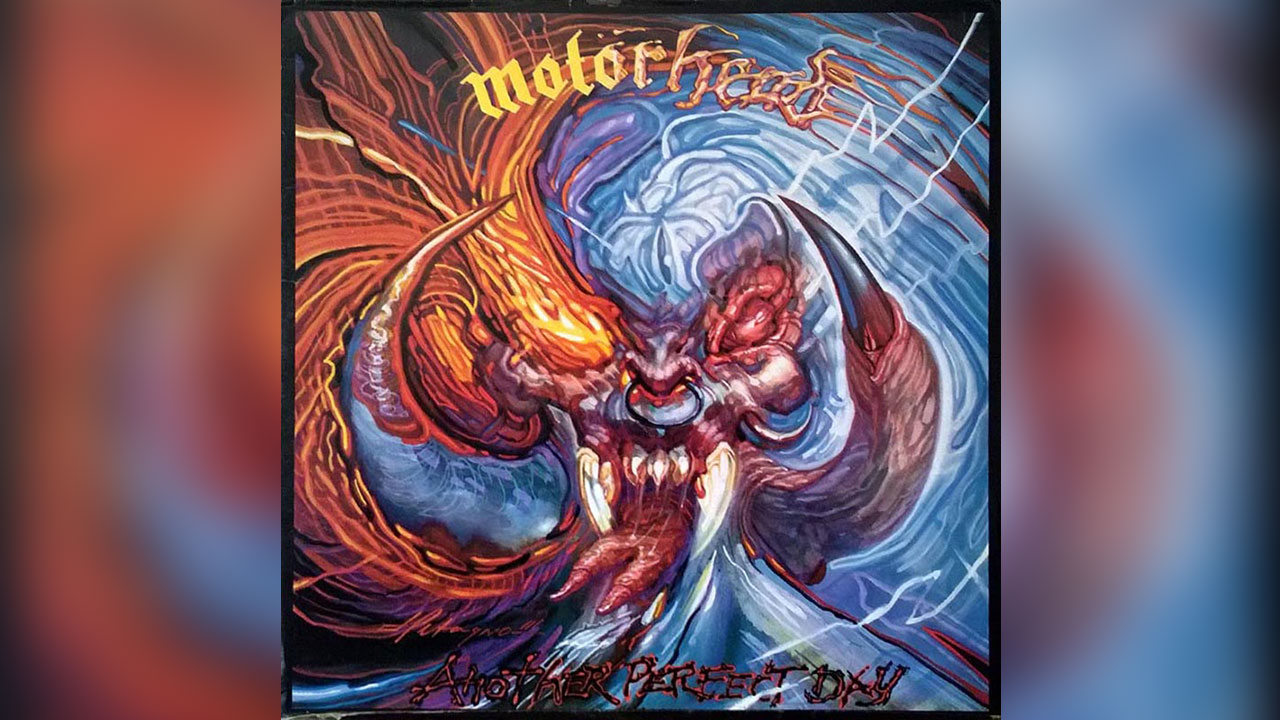When Motörhead went larking around with Girlschool for the 1981 St. Valentine’s Day Massacre EP, it seemed perfectly natural. Girlschool were, after all, a junior, female version of Lemmy and co. But when Lemmy cropped up on The Young & Moody Band’s collaboration with The Nolans' Don’t Do That later that same year, eyebrows were undoubtedly raised. It was when Lemmy decided to duet with the late Wendy O’Williams of The Plasmatics on a cover of the Tammy Wynette Country & Western standard Stand By Your Man, that guitarist “Fast” Eddie Clarke decided enough was enough. He promptly quit the band midway through their 1982 US tour.
His replacement was ex-Thin Lizzy guitarist, and noted firebrand Brian Robertson, who had been plying his trade in Wild Horses, and was supposedly working on a solo album. Robertson agreed to complete the tour with Motörhead and signed up for an album too, which became Another Perfect Day.
It was always going to be a gamble. Motörhead had spent the previous seven years establishing themselves as one of the leading pioneers of metal, and now the genre was enjoying unprecedented success in the UK. Robertson had twice been sacked from Thin Lizzy, no strangers themselves to the rock ’n’ roll lifestyle. Although his tenure with the equally gregarious Motörhead was not shot through with tales of debauchery, the flame-haired guitar slinger still created enough of a stir to raise the hackles of many long-term fans.
However, Robertson should not bear the brunt of the Motörheadbangers’ ire for Another Perfect Day, although he was certainly hated by some at the time. In the face of the unqualified success of Ace Of Spades and No Sleep ‘Til Hammersmith, and the more brutal attack of Iron Fist, Another Perfect Day’s melodically inclined grooves were a shock, causing some resistance from fans. But most now agree that time has treated Another Perfect Day well and it sits happily in the Motörhead canon as one of their better albums.
True, the singles Shine and I Got Mine were more melodic than fans of the “we fear change” variety had been used to, but surely bringing in fresh blood had revamped a tried and tested method? Hence, the likes of Dancing On Your Grave and Another Perfect Day itself became mainstays of the band’s live set in latter years, where previously Motörhead would ignore the album. Both Back At The Funny Farm and Die You Bastard! pack a serious punch, and even the bluesy One Track Mind pre-empted 1916’s The One To Sing The Blues.
Where Robbo did come a cropper was when the band headed out on the road in support of Another Perfect Day. Perhaps some fans could stomach his cropped bright red hair, though less so his penchant for wearing skimpy silk shorts and ballet shoes. But what really did for Robbo was his refusal to play the older Motörhead songs fans really wanted to hear. Now that was sacrilege. This isn’t just heavy metal we’re talking about after all. It’s Motörhead!
This article originally appeared in Classic Rock Presents: Motorhead.

